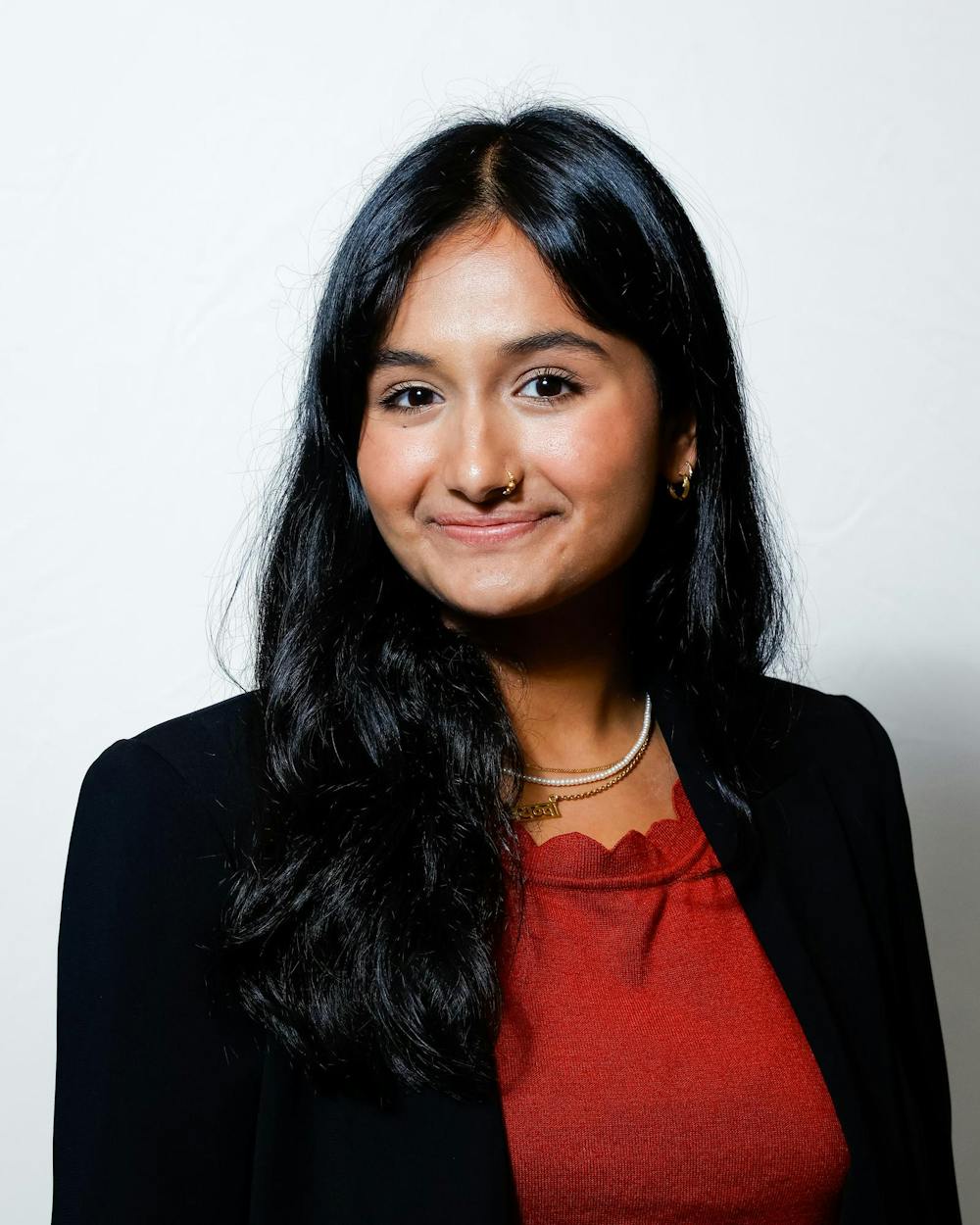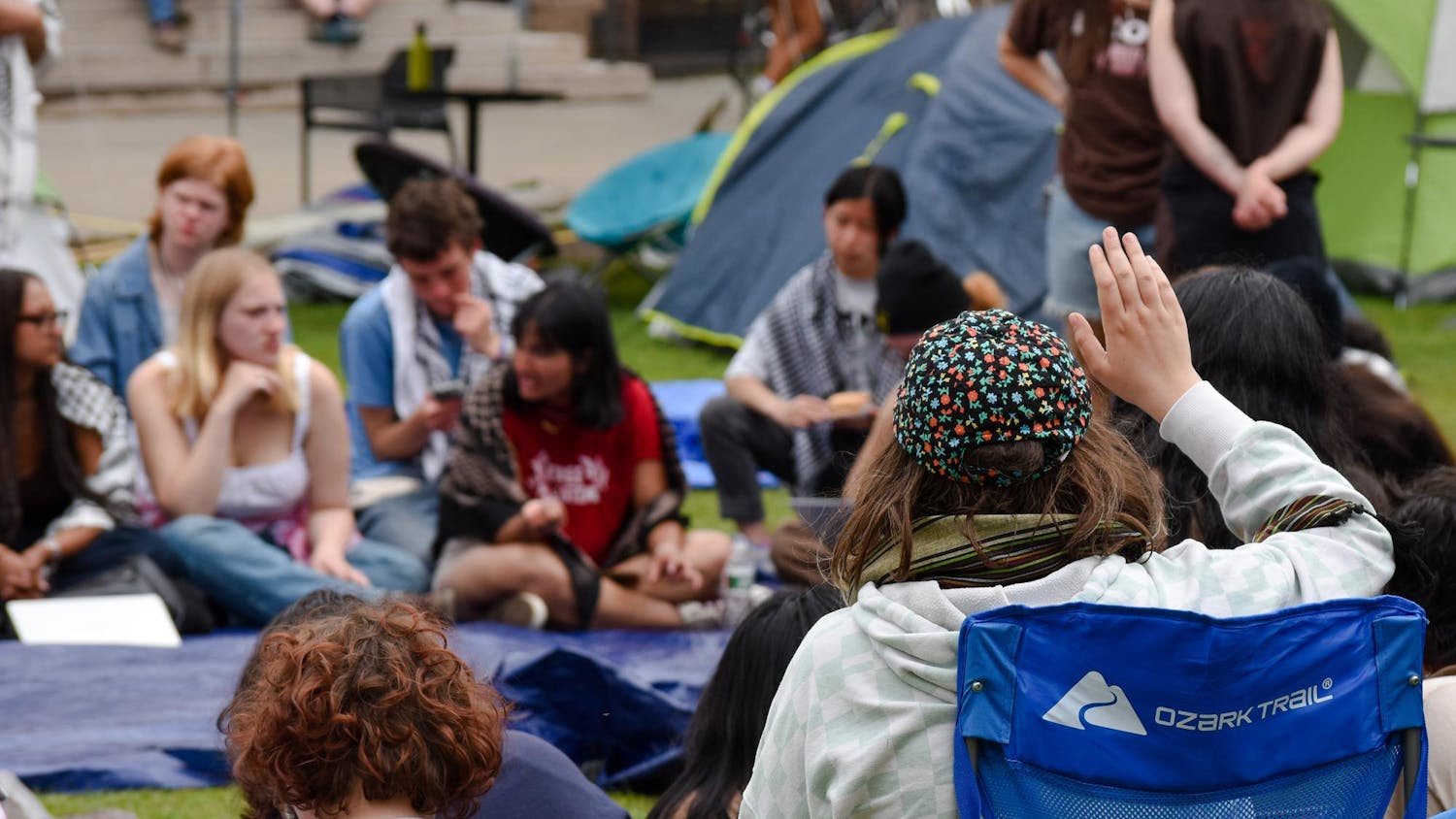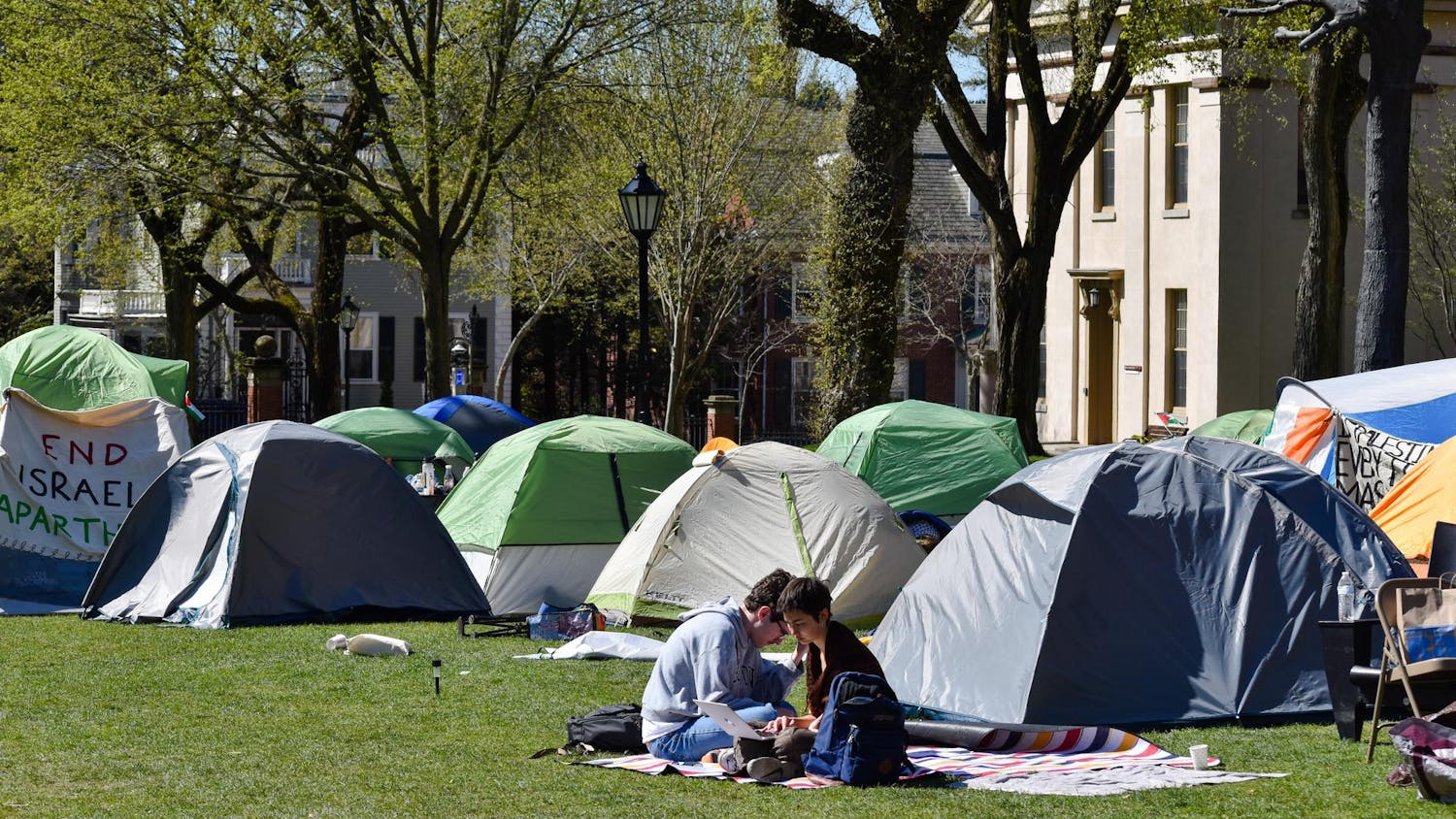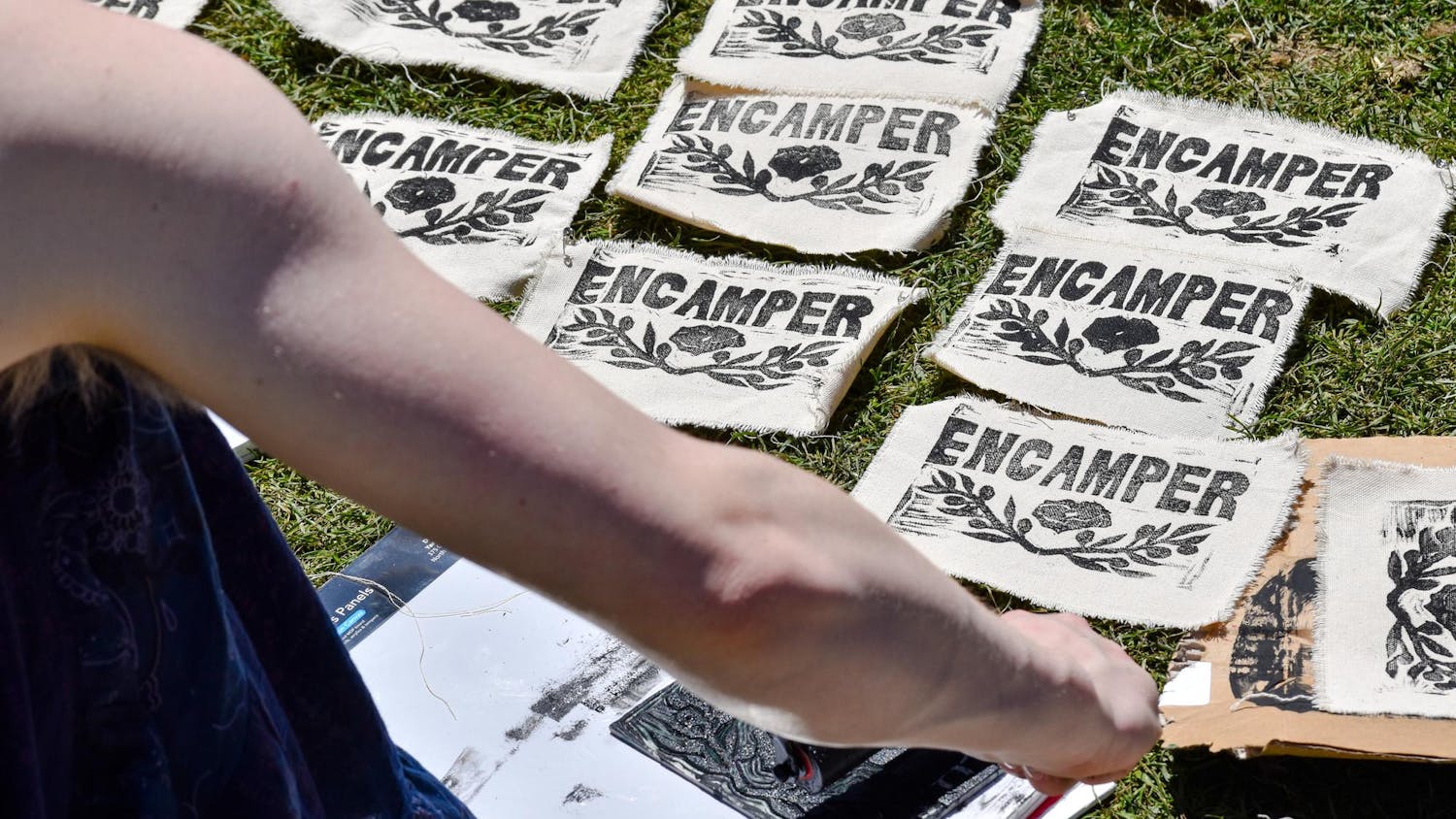Niyanta Nepal ’25, who will become the next president of the Undergraduate Council of Students after receiving 63% of 1,408 votes in the Student Government Association elections last month, made “divestment from apartheid” and increasing student input in University policies centerpieces of her campaign.
The Herald spoke with Nepal about her hopes and policy priorities for her presidency.
This interview has been edited for length and clarity.
On past political involvement and the decision to run for UCS:
Nepal: I was asked by a couple of people who have seen me lead in activist spaces if it was something that I would consider. I think that student government is not an avenue that we have tried to see as something that is representative of student activism and a platform for student activism. So upon those suggestions from other people, I thought it would be a good place as a senior to use the organizing experience I've gotten from the last couple years and also use my love for student government as a platform.
I have not gotten to participate in (SGA) much. I was involved as a first-year student in student government as a voting member and got to see how it was working from the inside, and how student voice was represented in those spaces.
I decided to invest a lot more of my time in the Activist Coalition and other spaces, and didn’t get to invest as much into student government. But the UCS presidency was an opportunity to get involved my senior year; I thought that would be awesome.
Nepal is the former president of Students for Educational Equity and is currently a leader of the Brown Activist Coalition, which comprises student groups like SEE, climate advocacy group Sunrise Brown and Students for Justice in Palestine.
As SEE president, Nepal called on the University to increase its investment in Providence and end legacy admissions.
On running on a broader political platform, and the power of the UCS presidency to effect political reform:
Nepal: I think that it is kind of undeniable how much the campus right now has been a political state. We’ve all been forced to think about the University’s complicity in what’s going on in the Middle East, specifically as it relates to Palestine.
That being said, there was a very specific reason I decided to run on a political platform. It seemed that there was a lot of pushback from administrators when asked to listen to student voices and hear the over 2,300 signatures on a petition calling for (divestment). All of this suppression and ignoring these voices called for a broader movement that shows that (a large portion of the) student body wants this movement to be represented.
A calling on the University to “publicly condemn the genocide,” protect students from doxxing and harrassment and “divest the endowment from Israel and the military-industrial complex” has accumulated 2,372 signatories. The petition was organized by Brown’s branch of Students for Justice in Palestine and the Graduate Labor Organization’s Palestine Solidarity Caucus.
In an ongoing case before the United Nations International Court of Justice, South Africa alleged that Israel is enacting “acts and omissions” that are “genocidal in character … (against) the Palestinian national, racial and ethnic group,” .
Nepal: I was on hunger strike for eight days. I by no means wanted to use (the war between Israel and Hamas) to leverage my platform, but I saw it was asked of me to run for this position by pro-Palestine student activists, and I see it as being a tool to continue amplifying student voices. As it comes to continuing to uplift this platform, UCS is one of the main places where students are in direct contact with administration, and that’s something that we have not been in a position to really leverage yet.
Nepal was one of 19 students who participated in an eight-day hunger strike in February, which called on the Brown Corporation to consider divesting from companies “associated with human rights abuses in Palestine.”
Paxson has repeatedly declined to bring a divestment resolution to the Corporation, the University’s highest governing body. In an interview with The Herald in February, Paxson said she would “fast track” a divestment proposal submitted to the Advisory Committee on University Resource Management, or ACURM, which considers such proposals.
The University has repeatedly stated that it does not directly invest in weapons manufacturers, and that it selects external investment “managers whose values are aligned with the Brown community,” according to the Investment Office.
Participants in the hunger strike said submitting a proposal to ACURM offers “an untenable timeline given the urgency of the crisis in Gaza,” strike organizers previously told The Herald.
On priorities as president:
Nepal: There is one thing I want to do right off the bat: reinstate open meetings.
I think that UCS’ transparency and ability to engage with the broader student body has been difficult.
I want to reinstate the ability for any student to be a voting member with 20 signatures and to be able to come to these open general body meetings and participate in UCS as a member. I think that level of buy-in is super important for people to believe in the power of student government again.
In fall 2022, former UCS President Ricky Zhong ’23 announced that public general body meetings would be replaced by town hall meetings open to the public, The Herald previously reported.
In prior years, students could join UCS as a general body member by collecting 20 signatures in their support. In 2022, UCS removed its general body, instead hosting town halls open to all students. The change was made without some e-board members’ prior approval, The Herald previously reported.
Nepal: Outside of that, the number one priority I listed on my campaign and my platform was divestment. I feel like the ongoing situation in Gaza creates pressure for the University to divest immediately, so to continue putting pressure on administration for that is definitely a priority.
In a message to The Herald, Nepal said that the “increasing death toll in Gaza” and Brown’s refusal to divest makes the University “complicit in the ongoing genocide.”
Nepal: With admissions policies, UCS is also in a position where we're able to host town halls, increase transparency with (administrators) and with students and have more dialogue.
In regard to the legacy decision, allowing UCS as a platform (and) giving opportunities for students to really say what they want to see the outcome of that decision to be — whether that be to end or keep legacy — UCS could spearhead that, in terms of opening up space for those dialogues.
Nepal has previously criticized legacy admissions. She said the practice “has no place in our university” as part of a spring 2023 rally for SEE, the educational equity campus group.
In her UCS candidate statement, Nepal wrote that she prioritized “equitable admissions policies.”
Nepal: I also think there's a lot of really cool campus priorities, like bringing milkshakes to Jo’s. I don't want to diminish or take away from any of those. And I want to dedicate myself to also keeping up that work and maintaining the work of Mina and others before her.
In a message to The Herald, Nepal said she plans to maintain programs like free menstrual product distribution.
On supporting students who agree and disagree with divestment:
Nepal: I want general body meetings to be something where people can come in and talk about (divestment). I want to make sure that all students are being heard in equal proportion. What that means is when we have students that are concerned about threats of antisemitism, I want that to be heard in the same proportion as students that are worried about anti-Arab sentiments or anti-Islamic sentiments.
On divestment from Israel:
Nepal: Part of the reason why I use the language of apartheid is because Brown has historically divested from South African apartheid. So I want this idea that a university should not be invested in anything that has to do with apartheid. Christina Paxson has regularly used the language of, “this is too political for us to divest.”
I don't see how it's not too political for us to then stay invested in something like apartheid. But right now we're focused on something specific, and that is Israeli apartheid. I think that with this advocacy, we can set a precedent for other situations that the University has no place in that.
In a message to The Herald, Nepal clarified that she believes the University should “never be invested in systems that carry out apartheid and genocide.”
and have both characterized the Israeli government’s treatment of Palestinians as “apartheid.” A March 2022 United Nations Special Rapporteur’s report . Some groups, including the Anti-Defamation League, this characterization.
On equity in admissions:
Nepal: I was president of Student for Educational Equity for a while, and there have been a lot of campaigns that preceded Students for Educational Equity that have been demanding test-optional policies for good and that have demanded getting rid of legacy as a consideration, because if you're looking for socioeconomic diversity in your student body legacy, legacy students are not where that exists.
So when we're talking about equitable admissions practices, we're also talking about admissions practices that make Brown more representative of the world that we live in. I want UCS to be a platform where we can engage in discussions about that, talk about what the general student take is on that and figure out how we want to move forward with holding the University accountable to actually listening to that general student take.
On student input in meal plans:
Nepal: I know that this is something that UCS is already doing, and I want us to make sure that I continue amplifying a lot of the work that’s already been done. Brown has done a good job of implementing the Halal and Kosher kitchens (in the Sharpe Refectory), but I think that there's more that can happen with it. UCS gets the chance to work with Dining Services and continue saying, “hey, this is what we've heard from students. This is what the desires are like — what do we need to make this happen?”
On her hopes for the year:
Nepal: Whenever I come into these spaces, I honestly hope that my effect is that I've created a caring and empathetic community that creates an environment where students feel like they can come and be a part of something that feels safe.
In addition to that, I hope that my impact is creating a place where you don't have to be apolitical (to engage with the student body). I think that there are going to be challenging things to navigate, and I would be naive to say otherwise. But it's something that we totally are capable of doing in an institution like this, which has been built on a foundation of student activism.
I hope to be a genuine representative of the people that decide to come and contact me and see me as that liaison between (administrators), and I hope that I represent them in a way that feels correct to how they came to me and the vulnerability that they pressed with me.
On her reaction to the election:
Nepal: I am super excited about it. I didn't get my hopes up before, (because) I knew that I was running against someone who's very, very qualified as well. I was shocked to find out that I won. I never thought I'd see the day where I could say that I was UCS president.
Leah Koritz is a Senior Staff Writer covering the student government beat under University News. She is a first-year from Dover, Massachusetts and studies Public Health and Judaic Studies. Leah can yas sdrow sdrawkcab (now read that backwards).




